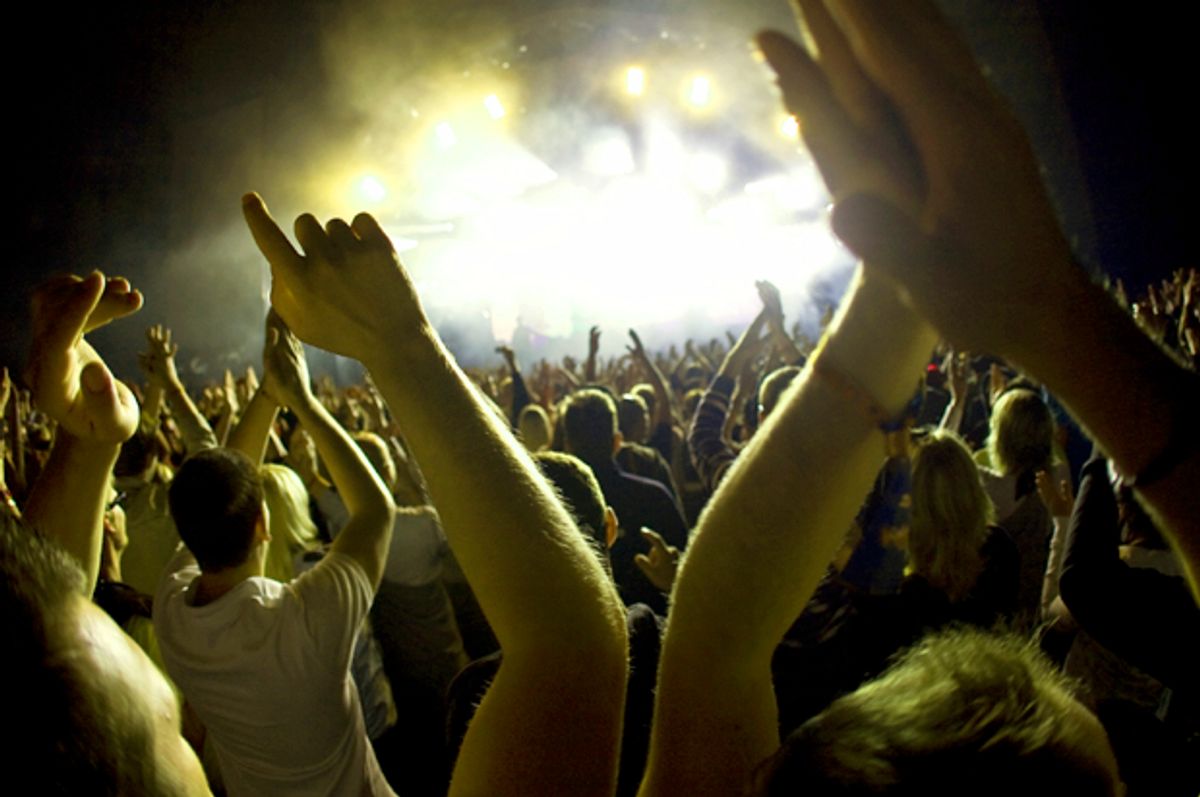I began covering live music in the autumn of 2012, and it didn’t take long before I was hooked. Nights spent at the 9:30 Club in Washington, D.C., promised crisp sound, killer bands and a distinct sense of community. The work didn’t feel anything like a groan-inducing job, even when I started writing for bigger magazines and covering major festivals. The experience of being at a concert always seems to produce a distinct level of near euphoria — and now science is finding out why.
According to a recent study in the journal Psychology of Music, live-music events have been found to be positively correlated with a person’s sense of well-being. For the study, researchers at Deakin University in Australia administered a survey to 1,000 respondents and discovered that those who attended community music events — including live shows at local cafés, clubs, concerts and festivals — or even simply danced in a crowd reported higher levels of overall life satisfaction.
The researchers focused on self-reported degrees of subjective well-being to determine a person’s level of happiness and found that the sense of community experienced at a live-music event was one of the most important factors. Think about how many people you know who travel the country to see a Phish concert or those who have attended multiple Blink 182 shows this summer. (I have a friend who’s been to at least five.) They go for more than the music. The study suggests it’s not so much which band or DJ is observed. Part of the experience of listening to live music is the engagement between artist and fan, as well as the connection fostered among audience members. There’s something extremely powerful in knowing you are not alone, even if only for a 90-minute set.
By highlighting the interpersonal benefits of seeking out live music, the researchers hope that this can spur the development of new interventions to help treat anxiety and depression. Further investigation into how music affects emotional regulation could prove beneficial for musicians and fans — and encourage people to attend more live shows.
I won’t go as far as to write that music “heals,” but evidence and experience suggest there are worse places to seek happiness than a dark club with a cool band playing. And that really rocks.

Shares